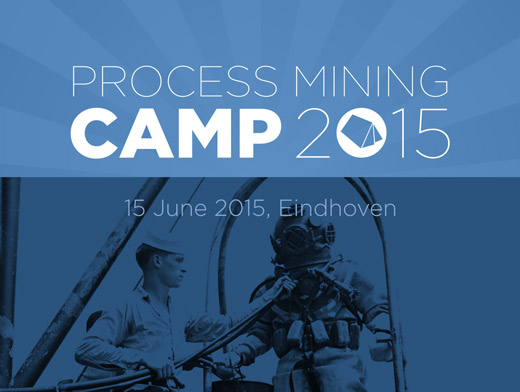Take A Deep Dive At This Year’s Process Mining Camp
Only 2 weeks to go to Process Mining Camp on 15 June! If you have not secured your ticket yet, you can do so on the Process Mining Camp Website.
Deep-Dive Talks
In the past years, our camp practice talks were mostly between 15 and 25 minutes, which is often enough to get a point across but does not leave much room to go deeper into the topic. The feedback that we received from campers was that sometimes they wanted to see in more detail, and more hands-on, how the speakers achieved what they were talking about.
Therefore, this year we introduce deep-dive talks for the first time. In a deep-dive talk the speaker gets up to 45 or 60 minutes time to really show things in more detail. We will also have a number of shorter talks focusing on a specific process mining aspect. This should give us a great mix with both a wide breadth of topics, and also the necessary depth.
Today, we are happy to announce the first two speakers. It is a very special pleasure to welcome back two process mining pioneers who have been with us in the very first Process Mining Camp in 2012: Léonard Studer from the City of Lausanne and Mieke Jans, back then with Deloitte, and today assistant professor at Hasselt University. They will both deliver deep-dive talks that give you practical advice for your own process mining projects.
Léonard Studer, City of Lausanne, Switzerland
What it means to study a too lengthy administrative process
Administrative processes are typically based on public laws and regulations. As such, you might think that they must be quite simple and well-structured, especially when compared to customer journey or hospital processes. The truth, though, is that administrative processes can become very complicated as well.1
Lonard and his colleague Ines analyzed the construction permit process at the City of Lausanne, which is regulated by 27 different laws from Swiss federal law, cantonal law, and communal regulation. It takes an average of six months to obtain a construction permit in Lausanne, from when the demand is filed. The administrative and technical employees already handle a heavy workload, while external clients like architects and construction businesses have put pressure on the public works department to speed up the process.
The objective of the study was to identify bottlenecks and inefficiencies in the process, of course without changing or removing any of the legally required steps. Lonard will take us on a journey through the project, with all its challenges, highlights, and findings. One of the problems was that there was no proper activity name and Lonard will show hands-on how he used text mining to pre-process the data.
Mieke Jans, Hasselt University, Belgium
Step-By-Step: From Data to Event Log
People often ask us about how to extract process mining data from ERP systems like SAP and Oracle. Our typical recommendation is that you work with pre-existing templates from one of our technology partners specialized on those systems. But what if you want to extract the data yourself?
Apart from some quite old and dusty Master’s theses, there is very little information available. Everyone needs to start from square one, basically re-inventing the wheel over and over. The challenge in extracting process mining data lies not only in finding the right data in the thousands of business tables, but there is a whole range of other questions2 that have a direct impact on the suitability and quality of the data that you get.
Mieke created her first event log from a relational database already eight years ago as part of her PhD research, and she has elaborated her experience later in industry. By now, she has created dozens of event logs from different relational databases (from standard ERP systems to custom-made legacy systems). In this talk, Mieke will walk you through a step-by-step approach for extracting a good event log from any relational database, which has never been published before. Based on illustrations of each step you will learn about the implications of your decisions, and you will get a unique head start for the next time you need to extract process mining data from a database. You will also get a handout with a checklist to take home, so that you don’t have to take too many notes.
Stay Tuned For More
We are just getting started, stay tuned for further updates on the speaker line-up of this year’s process mining camp! Sign up to receive notifications about camp updates here.
-
Have you looked at the building permit processes from the four municipalities of this year’s BPI Challenge? They are insanely complex! ↩︎
-
For example, earlier we have written about the challenge of many-to-many relationships here – but there are many more. ↩︎
Leave a Comment
You must be logged in to post a comment.










